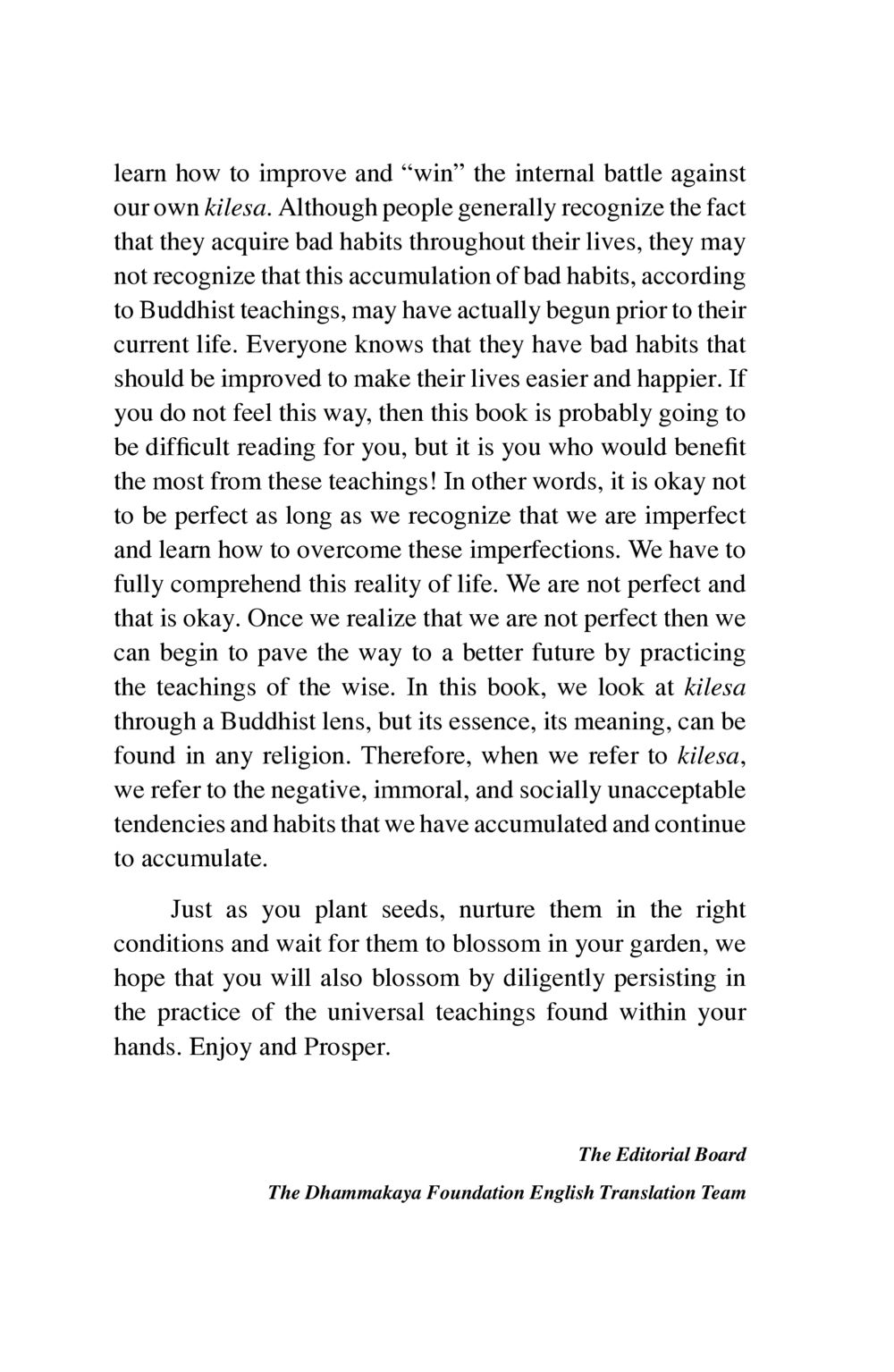Overcoming Kilesa: A Buddhist Perspective : หน้า 10/216
Family Day By Day : หน้า 10/216 Learn how to improve and overcome your internal struggles with kilesa, or negative habits, using Buddhist teachings.
0 ครั้ง

สรุปเนื้อหา
This book explores the concept of kilesa, or our negative tendencies and habits, through a Buddhist lens. It emphasizes the importance of acknowledging our imperfections and understanding that the accumulation of bad habits may begin before our current lives. By recognizing our flaws and practicing the teachings of the wise, we can pave the way for a better future and personal growth. The wisdom shared in this book is universal and applicable across different religions, aiming to help readers nurture their inner selves and blossom through diligent practice. Enjoy and prosper! Visit dmc.tv for more insights.
หัวข้อประเด็น
-Understanding Kilesa
-Importance of Self-Improvement
-Buddhist Teachings on Imperfection
-Practicing Mindfulness
-Growth and Personal Development
ข้อความต้นฉบับในหน้า
หน้าหนังสือทั้งหมด
























































































































































































































